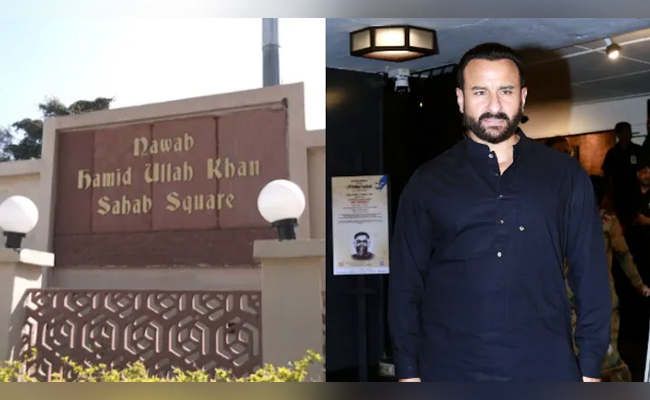Bhopal: The central government can take over the historical properties of the Pataudi family estimated to be worth Rs 15,000 crore in Madhya Pradesh under provisions of the Enemy Property Act, 1968, as per a ruling by the Madhya Pradesh High Court.
The HC lifted the stay imposed on these properties in 2015, potentially paving the way for their acquisition under the Enemy Property Act, 1968, as reported by NDTV.
Some of the properties included in the ruling are Flag Staff House, the Noor-Us-Sabah Palace, Dar-Us-Salam, Bungalow of Habibi, Ahmedabad Palace, Kohefiza Property, among others. The Enemy Property Act allows the government to seize control of properties belonging to persons who migrated to Pakistan after the Partition.
Bhopal's last Nawab, Hamidullah Khan, had three daughters. One of them migrated to Pakistan, while his second daughter, Sajida Sultan, stayed in India and married Nawab Iftikhar Ali Khan Pataudi, and became the legal heir.
Saif Ali Khan is Sajida's grandson ,and he inherited a share of the properties. However, the government is citing the migrant daughter as grounds to take control of the properties, NDTV mentioned.
Justice Vivek Agarwal, in his ruling, stated that the amended Enemy Property Act, 2017, provides a statutory mechanism for addressing disputes. "If a representation is filed within 30 days from today, the appellate authority shall not advert to the aspect of limitation and shall deal with the appeal on its own merits," the report said, quoting the court.
Meanwhile, 1.5 lakh residents are anxious about the potential takeover after the government has been pushing forward its plans to conduct surveys and determine ownership.
"The stay has been lifted, but merging these properties under the Enemy Property Act is complicated. The Pataudi family still has a chance to appeal," one of the residents of these properties told the publication.
"The government is claiming these properties, but many have been sold or leased over the years. This issue is far from straightforward,” another resident said.
Let the Truth be known. If you read VB and like VB, please be a VB Supporter and Help us deliver the Truth to one and all.
Mumbai, Jul 25 (PTI): Police have opposed the bail plea of the Bangladeshi national arrested for allegedly stabbing Bollywood actor Saif Ali Khan with a knife and injuring him at his home here in January this year, telling a Mumbai court there was "strong evidence" against the accused.
Citing a Forensic Science Laboratory report, police reiterated before the sessions court their earlier claim knife fragments that got lodged near the actor's spine during the attack as well as a part found at the crime spot have matched with the weapon recovered from the accused, Shariful Islam.
These three pieces were part of the same weapon (knife) used to attack the filmstar, the police said in a written response to the accused's plea submitted in the court on Thursday (July 24).
Khan was repeatedly stabbed with a knife by an intruder inside his 12th floor apartment in upscale Bandra on January 16 during a robbery attempt.
The 54-year-old actor underwent surgery at Lilavati Hospital to remove a piece of knife that got lodged near his spine during the attack. He was discharged from the private hospital after five days.
Shariful Islam, a Bangladeshi national, was arrested two days later for allegedly stabbing Khan.
The police, in their response, highlighted that the accused is a Bangladeshi citizen residing illegally in India.
If granted bail, there was a possibility that he may flee India and not appear before the court during the trial. The crime committed by the accused is of a "very serious nature, and strong evidence" is available against him, they argued.
In his bail plea, filed through advocate Vipul Dushing, the accused asserted he was innocent and had no prior criminal record.
Investigation into the case has practically concluded with only the filing of a chargesheet pending, the accused contended while seeking bail.
The alleged attacker has been booked under Bharatiya Nyaya Sanhita (BNS) sections related to house trespass, robbery and dacoity with attempt to cause death or grievous injury.





